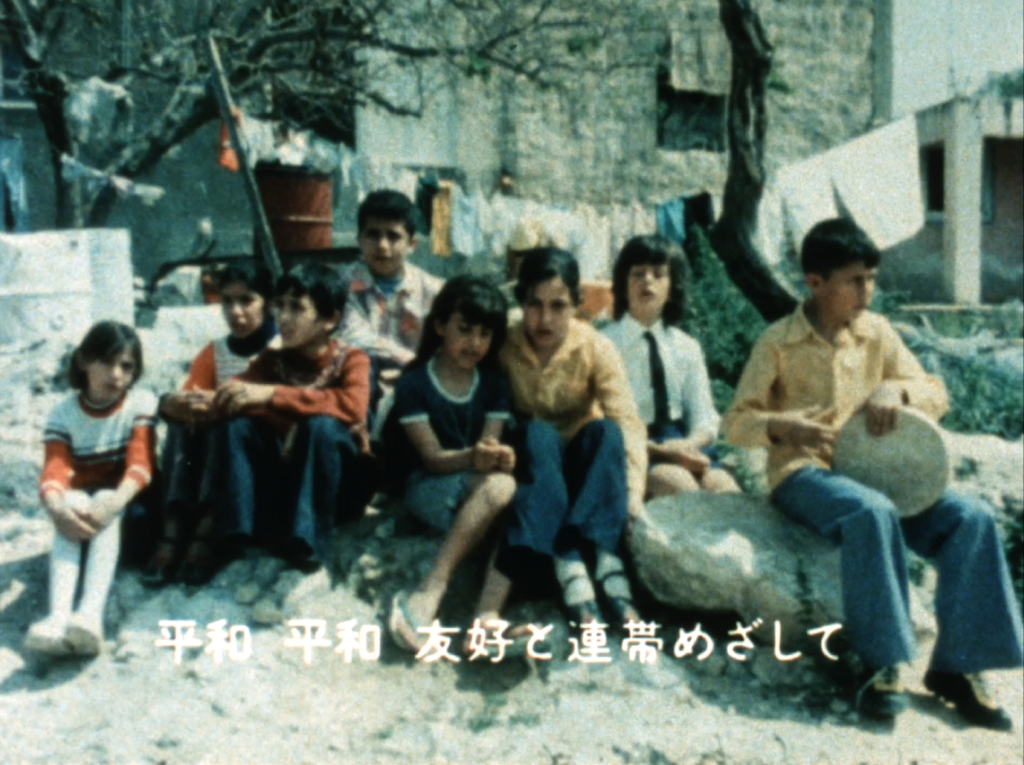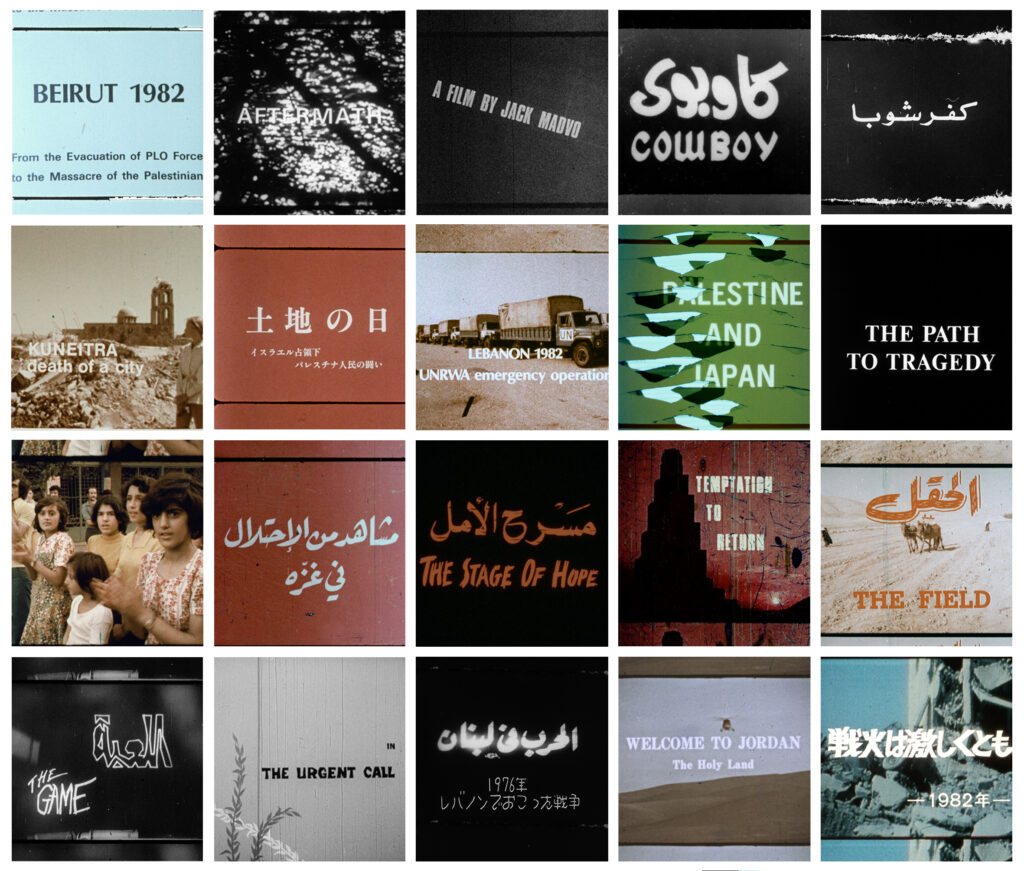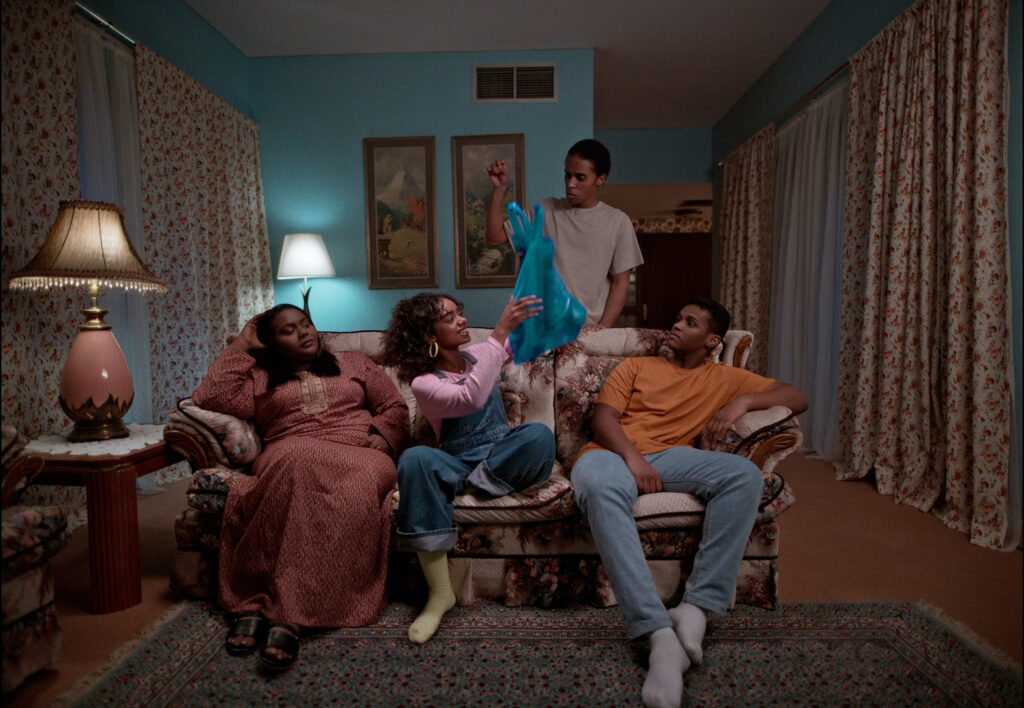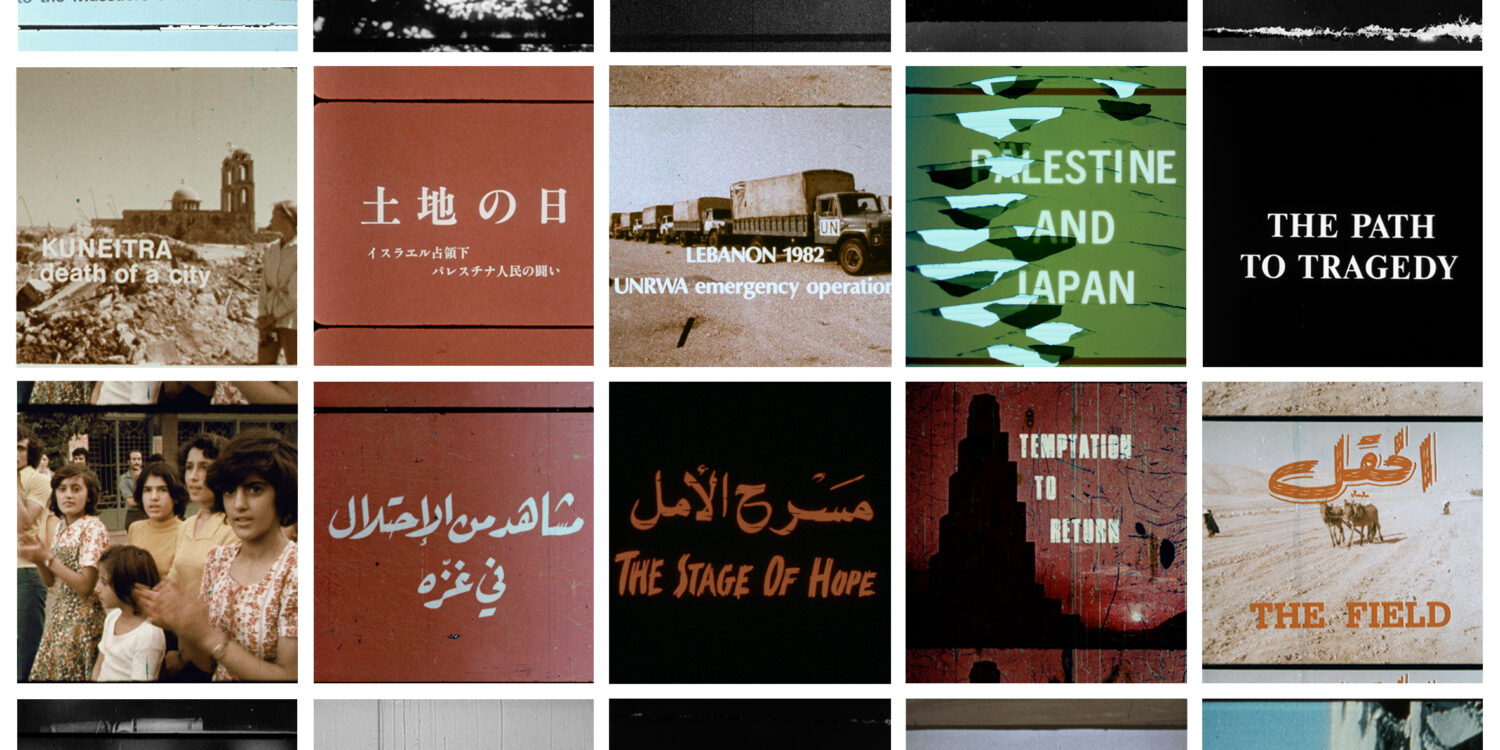Throughout the film festival, we’ll be bringing you bitesize, behind-the-scenes, blogs to read. Written by Ja’far ‘Abd al-Hamid, a writer-director, with a focus on Arab British stories. His latest feature film, Kal & Cambridge, is scheduled for release next year.
Explore the full programme here, SAFAR Film Festival runs from 29 June to 9 July across 9 cities in the UK.

R21 AKA Restoring Solidarity & SAFAR Shorts Programme
I step off the air-conditioned District Line train into the late afternoon heat at Faringdon Station. I alight a stop early in order to learn the route on foot to the Barbican centre; as I need to return to Faringdon later to make an evening screening at the ICA.
At Cinema Three, I manage to find my seat in the dark; the walk from Faringdon took a tad longer than expected.
I catch the last few minutes of the introduction by Amina Ali, Asmaa Elsouda and Osama Harhor who are taking part in SAFAR’s mentorship scheme for early-career Arab film programmers. All three are curating this screening of R21 AKA Restoring Solidarity (Dir. Mohanad Yaqubi 2022).
Per the evening’s programme, the film “documents cross-continental relationships of solidarity spanning Japan and Palestine in the 1970s and 1980s.” Filmmaker Mohanad Yaqubi is granted access to a collection of twenty 16mm films at the Tokyo archive of the Japanese solidarity movement with Palestine.
The montage reel that the director creates is breath-taking in the way it presents the past as so immediate, almost tangible, in clips and scenes that blend documentary and fiction, in what he describes as “militant cinema”.
Knowing what we know in 2023 of all the pain and hardship of the Palestinian nation, 75 years after the Nakba, there is an element of optimism and a wellspring of dreams and aspirations in parts of Yaqubi’s film that are so inspiring in the painfully regressive present for Palestinian rights and the continued occupation and encroachment into Palestinian land by settler occupiers, or as the French aptly call them “les colons”.

I retrace my steps back to Farringdon Station, and catch the Elizabeth Line to the West End, to attend the SAFAR Shorts programme at the ICA.
Festival curator Rabih El-Khoury talks briefly about the five shorts in the programme:
Galb’echaouf (Dir. Abdessamad El Montassir, Western Sahara, Morocco 2021)
Les Chenilles (Dirs. Noel and Michelle Keserwany, France, Lebanon 2023)
Life on the Horn (Dir. Mo Harawe, Austria, Somalia, Germany 2020)
VHS Tape Replaced (Dir. Maha Al-Saati, Saudi Arabia 2022)
My Girl Friend (Sahbety) (Dir. Kawthar Younis, Egypt 2022)
As Rabih describes the running order of the shorts in the evening, I am reminded of the artistic choices, and certainly the craft, behind festival programming in general. More specifically, in putting together these five films, Rabih has studied their relationship to space and time. They kick off in the vast desert in Galb’echaouf; move to an urban French environment in Lyon in Les Chenilles; to a small village in Somalia in Life on the Horn; to mostly enclosed spaces, including a flush red car, in VHS Tape Replaced; and finally to a single room with two characters in My Girl Friend.
After the screening, Rabih invites VHS Tape Replaced director Maha Al-Saati to the stage for a Q&A.

Starring Motasem Nasser and Sarah Taibah, the 1987-set story chronicles the attempts of a young Saudi man to woo his crush, Mashael (played by Taibah) by acting out an iconic singer’s famous video clip. He inserts his performance tape inside the VHS cassette case of another film altogether, so that his unsuspecting sister can pass it on to Mashael.
Unfortunately for the young man, Eyad, the tape falls into the wrong hands, and soon he has a 1980s analogue version of a video going viral.
The short comedy is layered with an awareness of issues of race, gender, and a focus on the agency of young women in the story.
Al-Saati’s film makes me think of other Saudi shorts that I have been able to view, such as The Girls Who Burned the Night (Dir. Sara Mesfer 2020), Me & Aydarous (Dir. Sara Balghonaim 2022), Othman (Dir. Khaled Zidan 2022); not to mention Saudi features, including Barakah Meets Barakah (Dir. Mahmoud Sabbagh 2016), The Book of Sun (Dir. Faris Godus 2020), and Wadjda (Dir. Haifaa Al-Mansour 2012).
The nascent Saudi filmmaking movement seems to be part of the general artistic output in the country in recent history. The Saudi novel, for example, figures prominently in the literary map of the Arab world. There is hardly a list of top 20th century Arabic novels that doesn’t feature the Saudi novelist ‘Abd al-Rahman Munif’s epic Cities of Salt. In the new century, among the significant number of long and short form fiction writers in the country, Saudi novelists Raja’a Alem and Mohammed Hasan Alwan, respectively, have won the prestigious International Prize for Arabic Fiction.
More immediately related to film is the staggering box office success of the Saudi film Sattar (Dir. Abdullah Al-Arak 2022), clocking 723,000 tickets, as of March this year, and along the way dethroning Avatar: The Way of Water (2022) from the top of the Saudi box office.
I feel Sattar will encourage further private investment in Saudi films, thereby accelerating a chain reaction that sees a combination of a supportive home audience, private investment and an exponential increase in cinema locations and screens in the country. Taken together, along with the expanding production infrastructure, and of course the rise of local talent, I think Saudi Arabia is likely to emerge in the future as one of the few nations around the globe to have a fully fledged home film industry.
In expanding on the background behind the plot of her film, Maha talks about the culture and rituals revolving around VHS tape rental shops in the 1980s. She relates some of the mischief that occurred when the tape inside a rented VHS cassette was swapped for a tape of a completely different film. The staff of the video rentals store wouldn’t be any the wiser, and would simply hand over the tape to the next unsuspecting customer.
Walking from the station home, I feel nostalgic for my own VHS film schooling at video shops in Beirut, Damascus and London. I remember the wide ranging film knowledge of the staff at these stores, and how they would alert me to the latest addition to their “World Cinema” section, and also to their romcom collection.
Until the next, and final, SAFAR 2023 dispatch.

